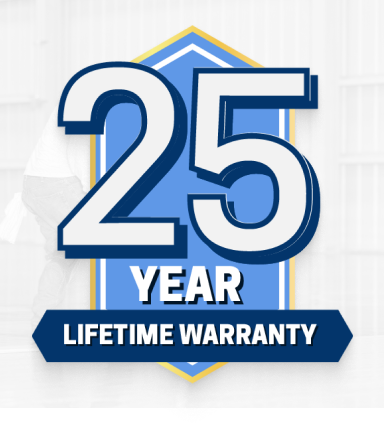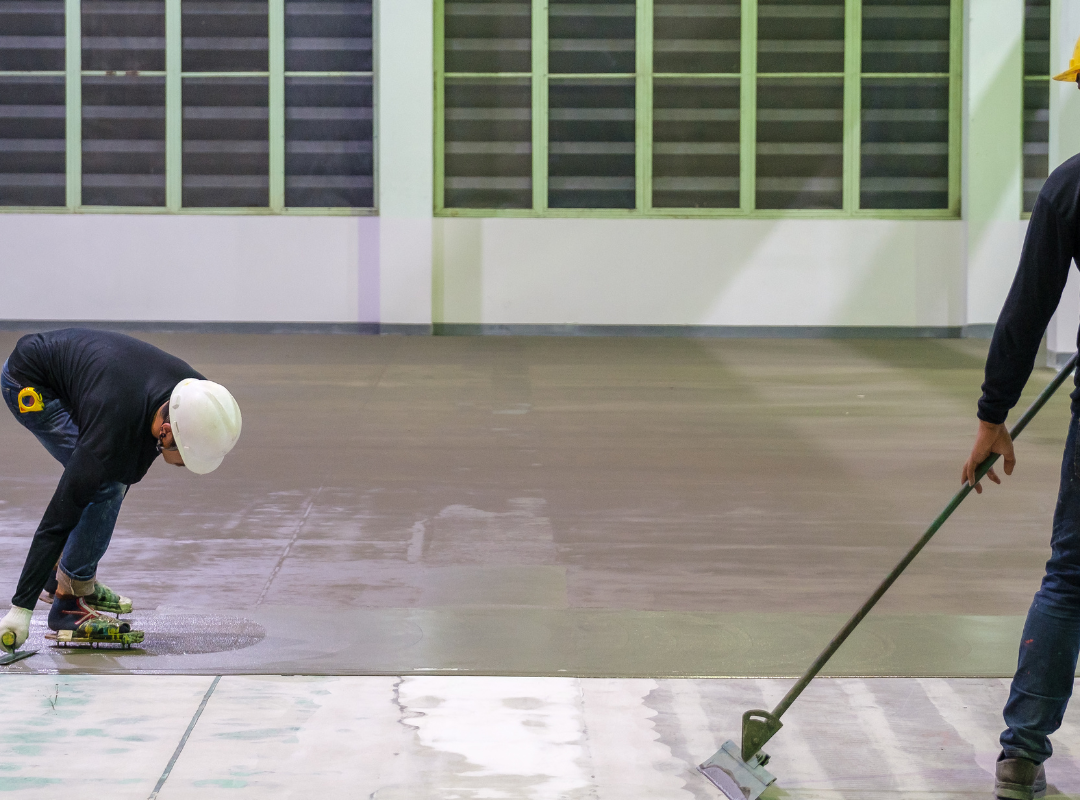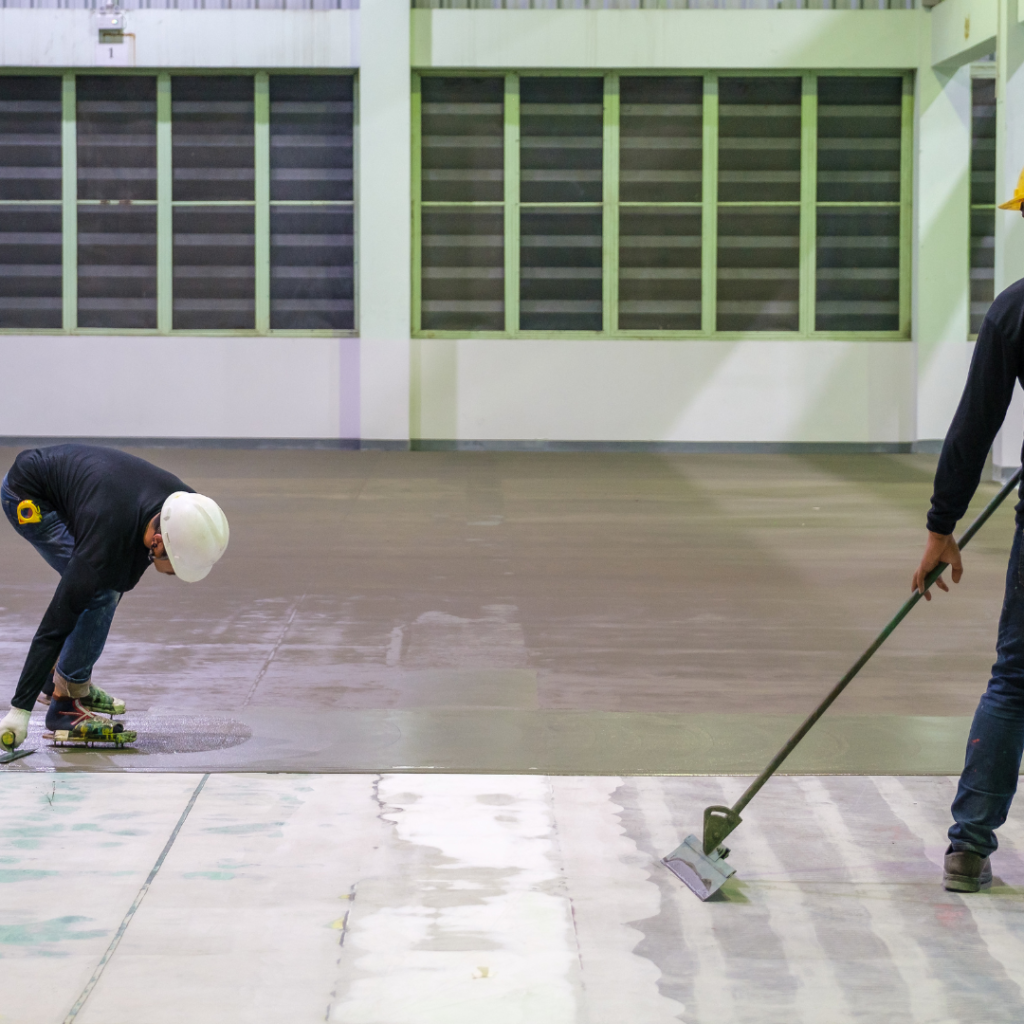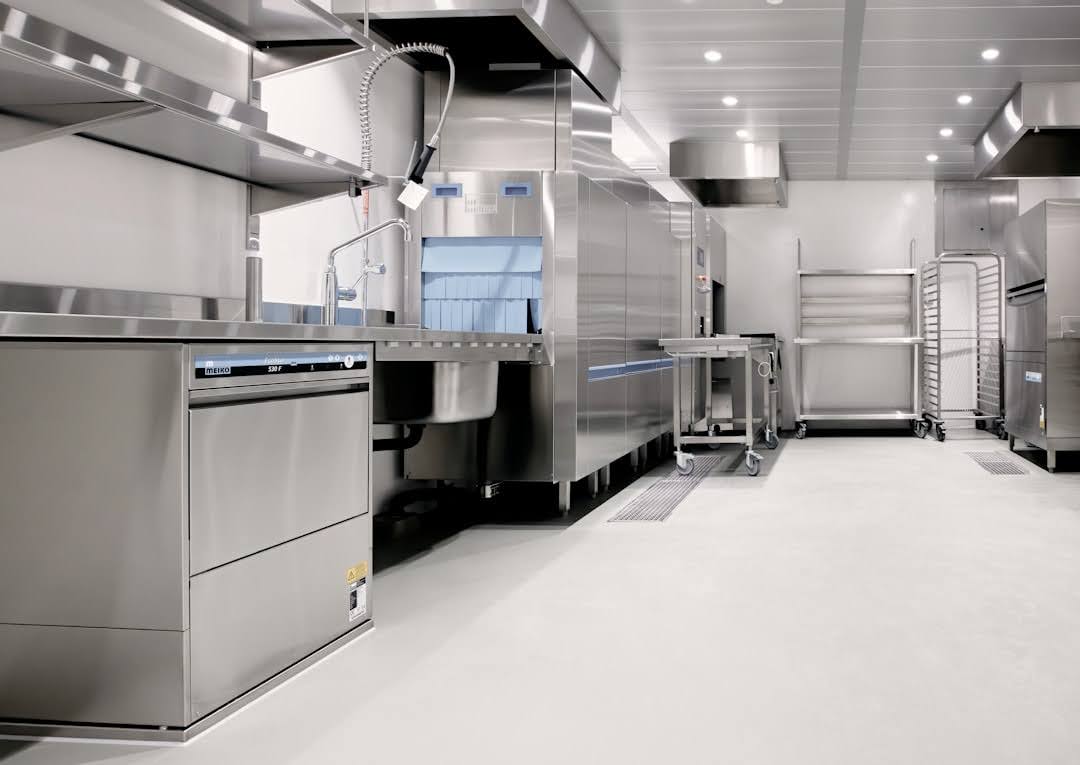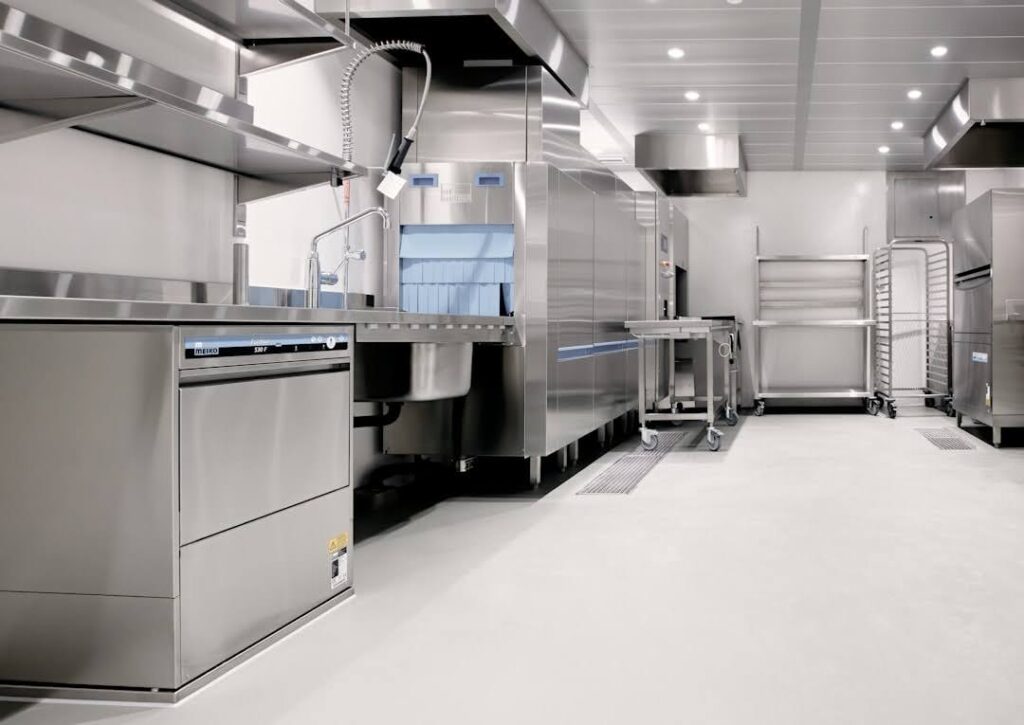
Michael Thompson
July 3, 2024
Table of Contents

In Florida, the intense sun and extreme temperatures test the limits of many building materials, including garage epoxy floors. Epoxy floors are increasingly popular among homeowners facing these harsh conditions. This guide explores how well garage epoxy floors stand up to Florida’s extreme heat. By understanding the benefits of epoxy flooring, homeowners can make decisions better.
The performance ofgarage epoxy floorsin the face of blistering temperatures is not just about enduring the heat. But, it is also about maintaining color, gloss, and surface integrity over time. Stay tuned to uncover if epoxy flooring is the right choice for your garage. Continue reading to learn more about making the most of epoxy flooring in your home.
What is a Garage Epoxy Floor?
A garage epoxy flooris a type of flooring that combines resilience and aesthetic appeal, making it a popular choice for garage spaces. This flooring solution involves an additional layerof epoxy coatingapplication. This is a type of durable resin over the concrete floorof a garage. The epoxy acts as a protective coating that resists floor stains, wear, and chemicals, which are common in a garage environment.
Epoxy flooring is known for its smooth, shiny surface that can be customized in a wide range of colors and patterns to enhance the look of the garage. This customization protects garage floors and turn it into a visually appealing part of their home. Additionally, the seamless nature of garage floor coatings makes it easy to clean and maintain. Thus, requiring only regular sweeping and occasional mopping with mild soap.
The installation process of a garage epoxy floorinvolves preparing the concrete surface, mixing the epoxy resin with a hardening agent, and then applying it to the floor. This mixture quickly hardens and forms a strong, durable surfacethat can last for many years with proper care.
Overall, a garage epoxy flooris an efficient, cost-effective way to upgrade a garage, providing a durable, easy-to-maintain surface that enhances the functional and aesthetic value of the busy home space.
Understanding Garage Epoxy Floors in Florida’s Heat
Epoxy flooring is a type of resinous coating that is applied over concrete floors or on other types of flooring to create a smooth, durable, and long-lasting surface. Its chemical composition allows it to resist degradation from sunlight, heat, and moisture—common conditions in Florida. This makes epoxy floors a popular optionfor garages, where extreme temperaturefluctuations and direct sunlight can be intense.
While epoxy floors are highly durable, they are not indestructible. They can still be susceptible to scratches and other floor damageif not properly maintained. Homeowners need to follow the manufacturer’s recommendations for care and maintenance, including regular cleaningand avoiding the use of harsh chemicals and abrasive cleaning agents.
Recommended Reading:Can High Temperature and Humidity Affect Epoxy Floors?
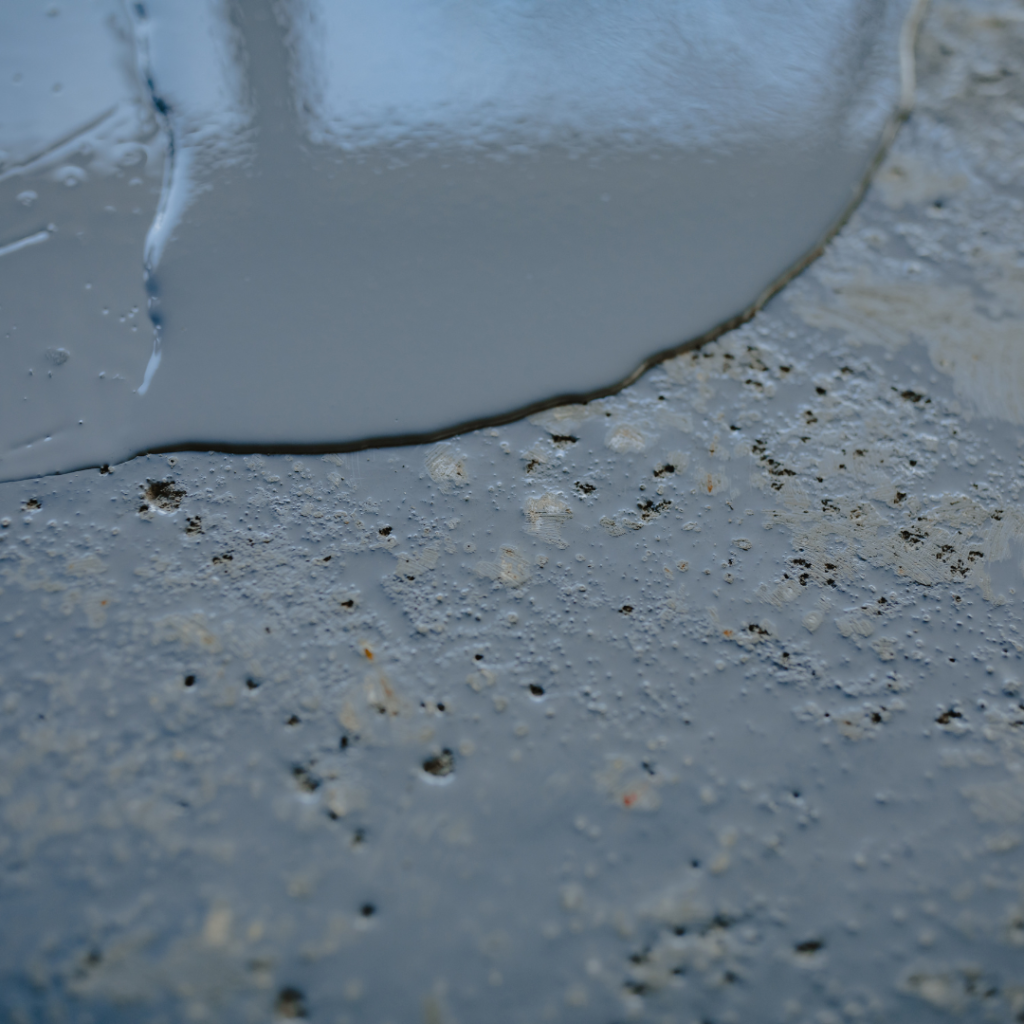
The Science Behind Epoxy’s Heat Resistance
Epoxy flooring is known for its remarkable heat resistance, making it an excellent choicefor places like garages, especially in warm climates such as Florida. But what is the science that makes epoxy so resilient under high temperatures?
The key to epoxy’s heat absorptionlies in its thermal stability. The mixed materialcan endure up to a certain temperature, known as its “glass transition temperature,” beyond which it will start to soften but not necessarily melt. For most epoxy types used in garage floors, this temperature is significantly higher than what would typically be experienced, even in the Florida heat.
Moreover, epoxy’s composition includes additives that enhance its resistance to ultraviolet (UV) rays and heat. These additives prevent the entire floorfrom fading, cracking, or peeling, which is particularly important in sunny environments. Epoxy’s innate properties also allow it to expand and contract with temperature changes without suffering damage, ensuring a durable, stain-resistant surface year-round.
The science behind epoxy’s heat absorptionis based on its unique chemical makeup and the robust structure it forms upon curing. These characteristics make it an ideal flooring solution for handling extreme conditions, including the intense heat often encountered in places like Florida garages. This resilience, combined with its aesthetic appeal, makes epoxy a smart and popular choice for many homeowners looking to enhance their garage spaces.
Recommended Reading:Breaking Down The Molecular Structures of Epoxy and Polyurethane for Better Choices
Expert Opinions: The Benefits of Epoxy Flooring in Florida
Epoxy materials are an ideal choicefor flooring, especially in places that experience high temperatures. This is because they have several characteristics that make them well-suited for hot climates. Here’s a closer look at the benefits of epoxy flooring in Florida:
- Heat Absorptionand Resistance: One of the standout features of epoxy materials is their ability to withstand high temperatures without deforming or losing integrity. This makes them ideal for garages or outdoor spaces that are exposed to the relentless sun.
- Durability: Epoxy floors are not only resistant to heat but also to many other signs of wearand tear. They are tough against scratches, impacts, and floor stains. This durability means they can last for many years even under harsh conditions, making them a cost-effective flooring solution.
- Low Thermal Conductivity: Epoxy materials do not conduct heat very efficiently, which means they can help keep functional spaces cooler. This characteristic is particularly beneficial in hot climates where keeping indoor spaces comfortable can be challenging.
- Moisture Resistance: Hot climates often come with high humidity, which can be tough on certain materials. Epoxy, however, has moisture resistanceproperties, preventing issues like mold and mildew that can arise in damp conditions.
- UV Resistance: Although epoxy can be sensitive to UV light, many modern epoxy floors come with UV stabilizers that help protect the flooring from the sun’s harmful rays. This prevents the beautiful color from fading and extends the life of the floor.
- Ease of Maintenance: Epoxy floors are incredibly easy to clean and maintain. They resist household chemical spills and don’t absorb odors, which is especially helpful in hot and humid environments where cleanliness is paramount to preventing odor buildup.
Given these characteristics, epoxy materials are an excellent choicefor those living in hot climates, offering a durable, long-lasting, and aesthetically pleasing flooring solution.
Future Innovations in Epoxy Flooring Technology
As the demand for durable, cost-effective, and attractive flooring continues to grow, researchers and manufacturers are focusing on several key areas to improve epoxy flooring systems.
One of the most significant advancements is the development of more environmentally friendly epoxy resins. These new formulations reduce the emission of volatile organic compounds (VOCs), which are harmful to both the environment and human health. By utilizing bio-based epoxides and hardeners, these greener epoxy solutions maintain the strength and durability of traditional epoxy while minimizing their environmental impact.
Related Article:Breathe Easy with Non-Toxic Epoxy Flooring Solutions
In addition, the aesthetic versatility of epoxy floors is set to expand with new pigment technologies. These include photo-luminescent pigments that can glow in the dark, providing additional safety features and unique design options. There is also ongoing work on thermochromic pigments, which change color based on temperature, offering dynamic and customizable visual effects for both residential and commercial spaces.
Lastly, new formulations are being tested to enhance the thermal stability of epoxy floors, ensuring that they do not degrade or discolor when exposed to sunlight or high ambient temperatures. This is particularly important in places like Florida, where extreme heatcan affect the performance and decorative appearanceof flooring systems.
Key Takeaways and Final ThoughtsFinal Thoughts
Selecting the appropriate garage flooring in Florida’s harsh climate is crucial for homeowners. The intense sun and heat can take a toll on ordinary flooring materials, making durability a key consideration. Garage epoxy floors provide resistance to high temperatures and UV rays which are prevalent in this region. Their resilience makes them a wise investment for those looking to enhance their garage space.
For those considering the installation of an epoxy garage flooring, professional assistancecan make a difference.Apex Flooringspecializes in providing epoxy solutions that withstand Florida’s extreme conditions. If you’re looking for reliable and professional installation services,contact Apex Flooringfor a consultation. Their team is ready to help you choose the best flooring optionfor your needs.
FAQs
Yes, epoxy floors are durable and can withstand a considerable amount of heat. They can tolerate temperatures up to about 200 degrees Fahrenheitwithout any damage to its appearance or structure. However, prolonged exposure to higher temperatures may lead to discoloration or softening of the epoxy floorsurface.
Epoxy floors are resistant to cracking due to heat. They handle a range of temperatures, which makes them suitable for environments that experience hot weather. That said, if the epoxy was not properly mixed or applied, or if the floor underneath expands and contracts significantly, there is a chance it could develop minor cracks over time.
Hot tires can leave marks on an epoxy floordue to the softening of the tire rubber, which can stick to the epoxy surface. To protect your epoxy flooring from hot tires, you can:
- Use Mats:Placing mats where vehicles are parked can prevent tire marks.
- Choose a High-Quality Epoxy:Choose a heat-resistant epoxy formulation that can better withstand the temperatures of hot tires.
- Regular Maintenance:Regularly cleaning the floor can also prevent tire marks from heavy trafficfrom becoming permanent.
Each of these points addresses common concerns about epoxy garage flooring, providing clear and helpful information for those considering other types of flooring solutions.
With proper installation and maintenance, an epoxy floorcan last between 10 to 20 years. The lifespan greatly depends on the amount of vehicle trafficand the type of activities it endures. Regular cleaningand avoiding harsh chemicals can extend the life of an epoxy floor.
Absolutely! Epoxy floor coatings can be applied to most garage floors, but the concrete must be properly prepared to ensure chemical adhesion. This preparation involves cleaning the floor thoroughly, repairing any deep cracks or floor damages, and ensuring the concrete floorsurface is dry and level. Floors with excess moistureissues or those that have been sealed may not be suitable for epoxy without additional preparation. It’s always recommended to consult with a professional such as Apex Flooringto assess the condition of the garage floorbefore proceeding with epoxy application.t
Written By:
Michael Thompson
Michael Thompson brings a deep knowledge of polymer chemistry from his Chemical Engineering studies at Georgia Tech to the forefront of his writings. With over 20 years in the industry, his articles are rich in detail about the science behind epoxy formulations and their real-world applications, guiding professionals and DIY enthusiasts alike.
Table of Contents
Related Epoxy Flooring News

Polyurea Garage Coating Florida | Heat & Weather-Proof Floors
If your garage floor is cracking, peeling, or stained, it’s time for an upgrade that

Epoxy Kitchen Floor & Indoor Epoxy Flooring in Florida
Get a durable, easy-to-clean epoxy kitchen floor that resists heat and spills. Call now

What Makes Marble Epoxy Floors a Smart Choice
Get a marble epoxy floor with a luxury look and lasting strength. Ideal for Florida




